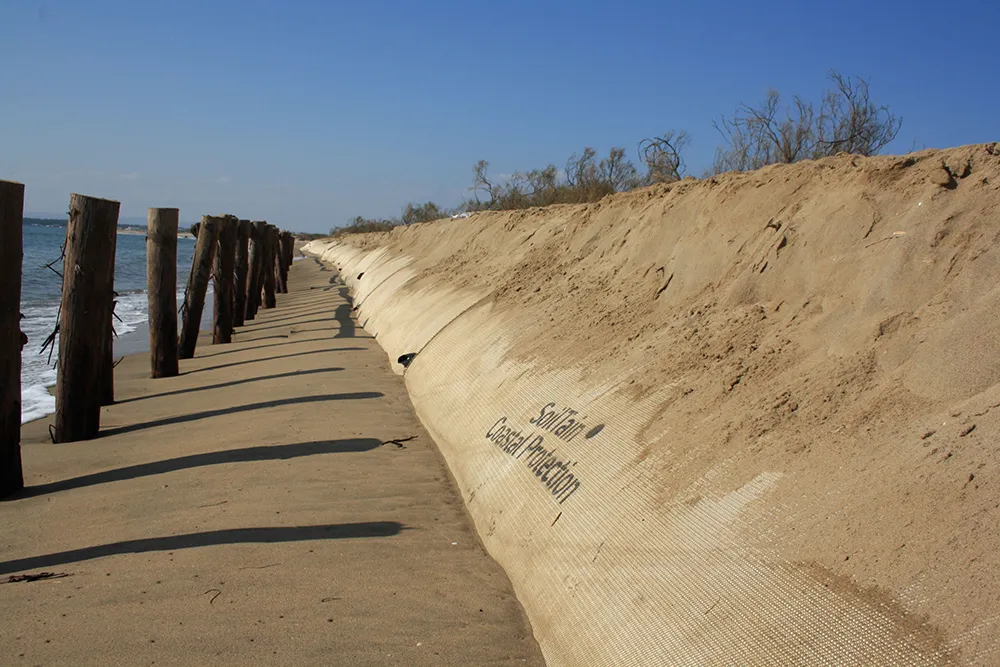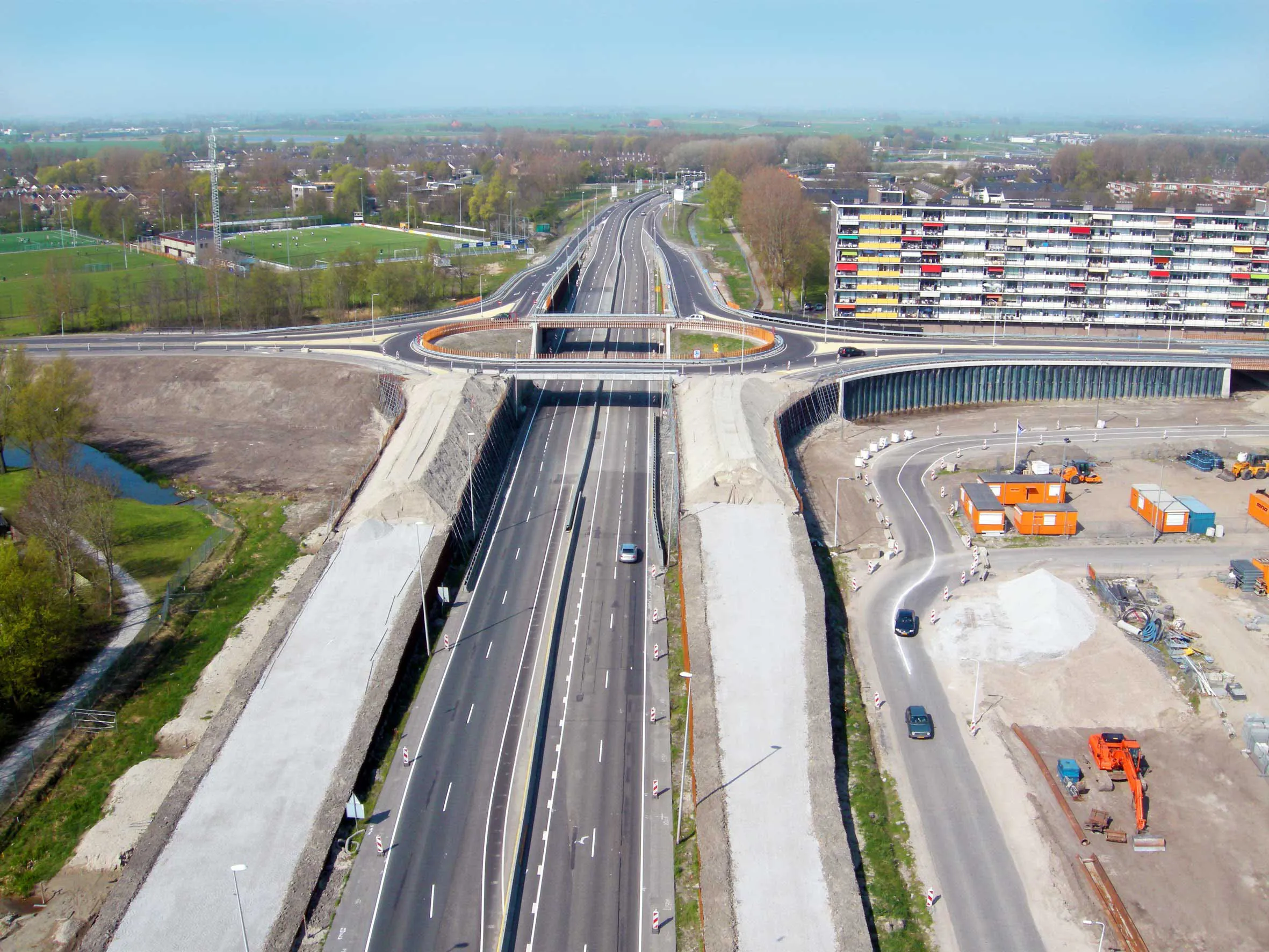
According to the firm, these offer effective erosion protection and provide economic and ecological alternatives to conventional construction methods.
The novel SoilTain coastal protection solutions can be individually prefabricated and are filled in-situ with locally available soils (usually sand). The range of solutions includes the proven SoilTain Tubes and SoilTain Bags and the new SoilTain Bags Xtreme.
The company offers two main systems: large-format geotextile tubes filled hydraulically with sand (SoilTain Tubes) and mechanically filled SoilTain Bags. Apart from the filling method, the two geotextile sand container elements differ in size, with sand bags being used for a volume of up to 2.5m³ and geotextile tubes having a capacity of several hundred m3.
SoilTain tubes are manufactured from geosynthetic fabrics of up to 1,000grammes/m², with standard lengths up to 50m. They are filled with a suspension of locally available sand via inlets. The sand-coloured, abrasion-resistant and UV-resistant fabric blends in with the landscape.
The new generation SoilTain Bags Xtreme sandbags are particularly robust and vandalism resistant. Conventional SoilTain Bags are small-format sand containers for all applications in shore and coastal protection. They are made of geotextiles with mass of 600-1,000grammes/m² and usually with a filling volume of 1m³. They are easy to handle and can be used for temporary and permanent applications.
The new SoilTain Xtreme material offers increased UV stability, a high sand accretion capacity and resistance to abrasion and vandalism. The basis weight of 1,200-1,800grammes/m² of the sand-coloured, two-layer non-woven fabric offers robustness and durablilty. These offer filling volumes of up to 2.5m³ in exposed locations and on beaches.







